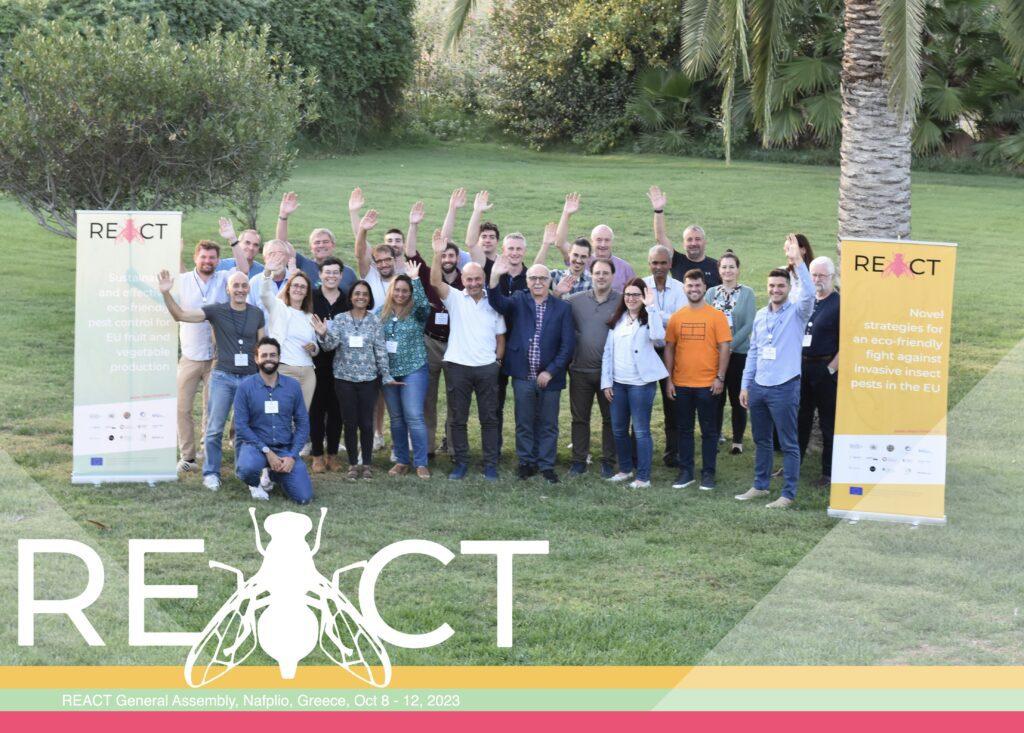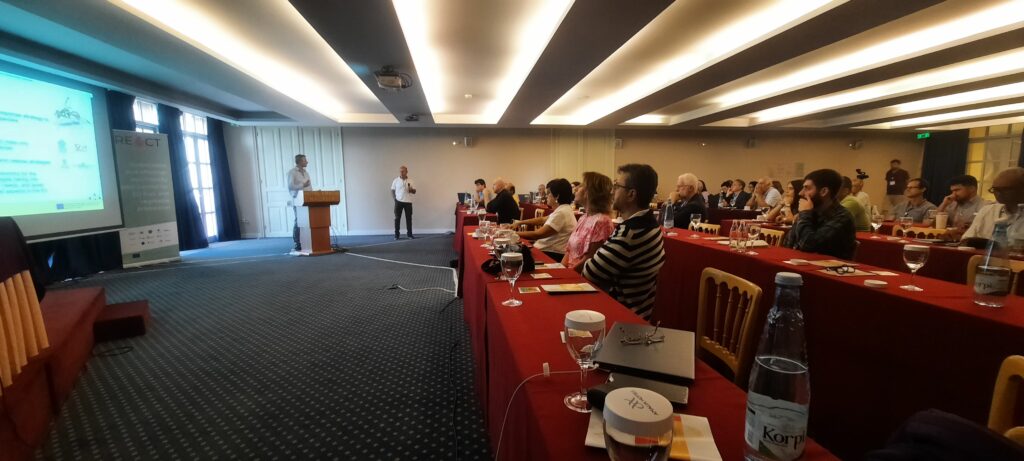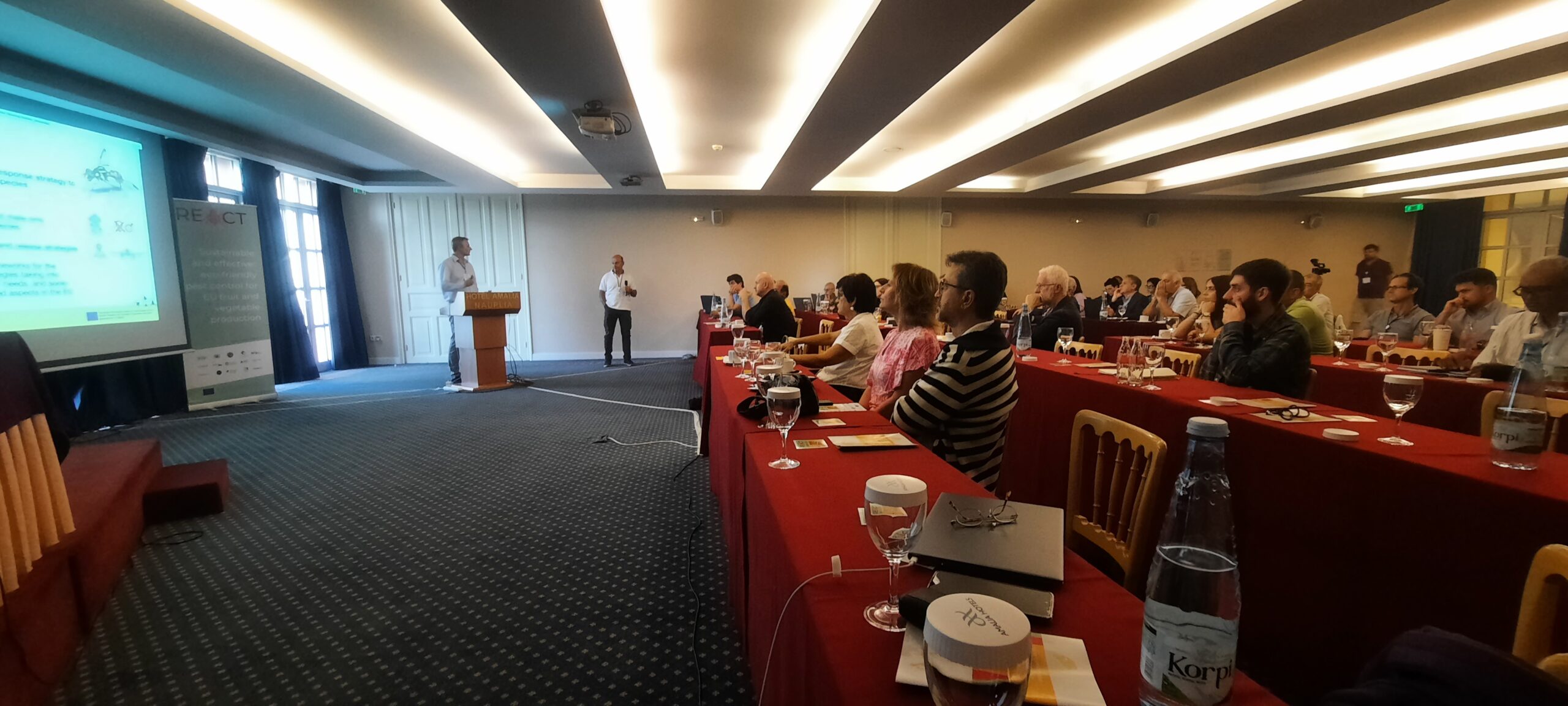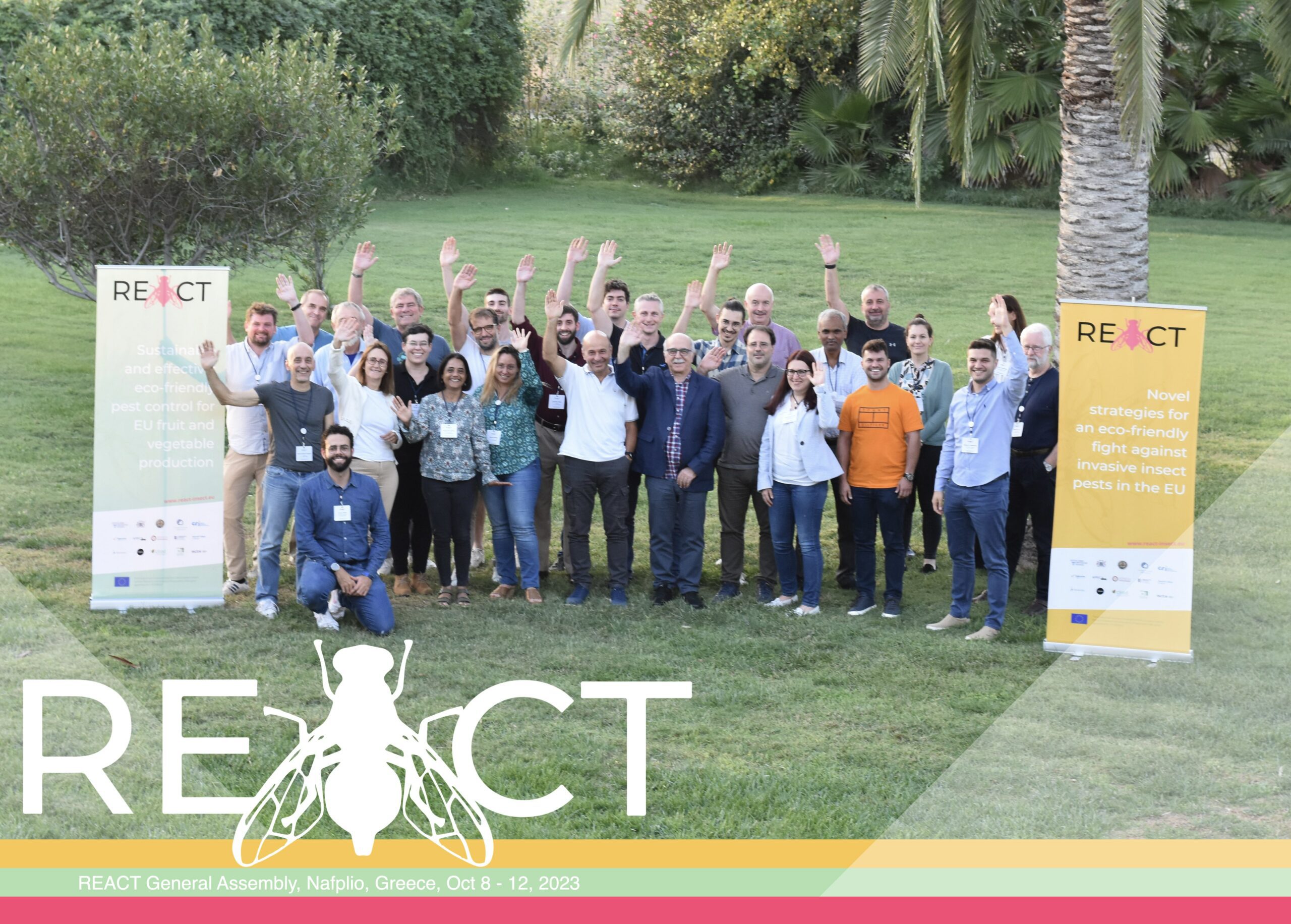
The REACT project partners at the annual consortium meeting in Nafplio, Greece. (Photo: REACT)

Representatives of the Greek agricultural sector were invited to discuss the potential future use of SIT to combat invasive insects.


Sterilized insects could help protect Greek agriculture
REACT GA and Stakeholder Meeting in Naflio, Greece
30 October 2023
Climate change facilitates the increased invasion of pest species into Europe, among them being two fruit fly species of Asian origin. EU research project REACT is developing innovative strategies to combat the species using ecological methods with first applications possibly taking place in Greece.
Can sterilized fruit flies help control pest populations of invasive fly species in Greece in the near future? This was the main question on October 11 in Nafplio, Greece. EU-funded research project REACT invited representatives of Greek agriculture to present the methods and strategies being developed in the project., which are then to be tested in Greece. REACT is targeting two species of fruit flies: Bactrocera dorsalis (oriental fruit fly) and Bactrocera zonata (peach fruit fly). Both species are increasingly invading Europe from subtropical regions, facilitated by climate change. In Greece the invasive species threaten fruit production. New strategies are therefore needed to control them efficiently using ecological and cost-effective methods.
At the meeting in Nafplio, the research program was presented in detail to inform the representatives of Greek authorities and agriculture about the potentials and challenges of SIT deployment in Greece. In this context, the REACT researchers were met with lively interest. In the area around Naousa in Macedonia, tests are to be carried out from 2025 onwards in which sterilized insects of endemic fly species (Ceratitis capitata, medfly) will be released. The tests will help prepare for future releases of the invasive species. In this process, REACT researchers place great importance on the support of Greek farmers and authorities, as well as regional politicians. This is because Sterile Insect Technique (SIT) applications can be used in the fight against insect pests successfully if as many farmers as possible participate.
The tests in Greece will also help verify the efficiency of SIT applications when controlling invasive pests. This is because the success of the method, as well as the entire REACT project, partly depends on whether it ultimately pays off for farmers. Creating an in-depth socio-economic cost-benefit analysis is therefore also part of the project.
By 2026 Bactrocera dorsalis and Bactrocera zonata could already pose an acute threat to farmers in the Mediterranean region. However, with the results of the REACT project, Europe could already be equipped with a promising method to defend against the threat. For this purpose, the REACT project will adapt the Sterile Insect Technique to the two fly species and to the conditions of European agriculture. In SIT, male fly larvae are sterilized by gamma radiation. After release into agricultural fields suffering from fly infestations, they mate with wild-type female flies without producing offspring. Thus, populations decline and fewer fruits are damaged by the deposited insect eggs.
But there is still a long way to go before this technology is ready for use, a challenge that needs to be overcome by researchers from 15 institutions, 8 countries and 3 continents. The sterilized insects must be bred in dedicated mass rearing facilities, and they must pass various fitness tests before they can eventually mate with the pest population in the wild. A facility for breeding suitable insects is currently being prepared in Patras at the Hellenic Agricultural Research Organization.
